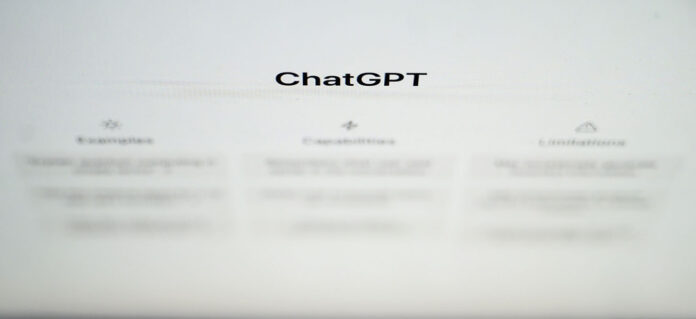One of the most enduring images of writing in popular culture is of a writer holed up in a room, day in and day out, merrily typing away or scribbling on a notebook to produce phenomenal literature. However, not everything about writing is as rosy.
Constantly lurking is writer’s block, leaving the writer in a creative slowdown. It’s a terrible affliction. But today there is an even greater threat to the act of producing literature: the rise of artificial intelligence (AI) that can eerily mimic writers.
AI uses computers and technology to simulate the human brain’s abilities. The advent of AI affects many sectors of society, including writing or content creation.
Nowadays, an aspirant writer can turn to AI tools such as ChatGPT to produce content, from marketing booklets to novels. The speed at which AI can create artistic and literary works to compete with human-authored works poses a significant threat to both the economic and cultural value of the latter.
In fact, some literary competitions clamp down on submissions that are written with AI tools. Some people fear that AI is about to replace writers.
But that fear is far-fetched. Writers will always be around. There’s a huge difference between a story from a human and a machine. A machine lacks human intelligence and feeling and cannot, for instance, write humour nor can it offer the granular details of a lived human experience.
To illustrate this point, acclaimed novelist, Salman Rushdie once asked ChatGPT to write 200 words in his style. The result, Rushdie proclaimed, was “a bunch of nonsense”.
“No reader who had read a single page of mine could think I was the author. Rather reassuring,” Rushdie said. He acknowledged, however, that AI could be a threat to writers of thrillers and scriptwriters, where there’s less demand for originality.
Having been in the literary field for many decades and having dabbled in many forms of writing, I don’t fear AI. I’ve witnessed a fair amount of innovations in my lifetime to put my mind at ease. I remember growing up witnessing the typewriter replacing handwriting and, -later, the computer replacing the typewriter as a writing tool.
Change is constant. It needs to be welcomed.
AI should be used to support the writing process. Writers must leverage AI to their advantage. If you’re a writer and need help studying a difficult subject, there are AI tools that can assist you and even recommend items to include in your writing. If you’re a writer who struggles with grammar, flow, or syntax, or who wants to avoid plagiarism, AI platforms can help you.
These AI tools are not meant to write for you; rather, they are there to assist you. Among other advantages, these AI solutions save time and effort while producing error-free material.
What some perceive as a threat should be transformed into an advantage.
Furthermore, AI contributes to the promotion of written works. Algorithms affect reader purchases. Writers that are active online make it easier for AI to market their work.
Some AI-powered chatbots and virtual assistants answer reader questions about characters, plot points, and historical context, potentially enhancing reader comprehension and engagement with the text. This is certainly beneficial.
As with any technology, the advantages are continuously balanced with disadvantages or risks. The rise of AI reveals the digital divide that Africa faces. African countries must improve internet connectivity so that regular citizens may benefit from data-driven technology such as AI, rather than just the privileged few.
Otherwise, Africa risks being under-represented online, which could jeopardise the creation and promotion of African literature, among other things.
Fortunately, there is a realisation on the continent that AI may assist in boosting productivity and job creation outcomes across sectors such as manufacturing, agriculture, financial services and natural resources critical to economic growth.
I am convinced that AI can help writers to create stories that entertain, inspire and educate. Stories that lead to the construction of a just society.
Despite the advent of AI, writers must believe in their own potential to be creative. We can’t wish the future away, nor can we afford to become Luddites.
- Seakhoa is the managing director at the wRite Associates and executive director of the Africa Century International African Writers Conference and the SALiterary Awards, which will be held on November 7 in Tshwane. For info visit www.sala.org.za and www.africacenturyconference.co.za



